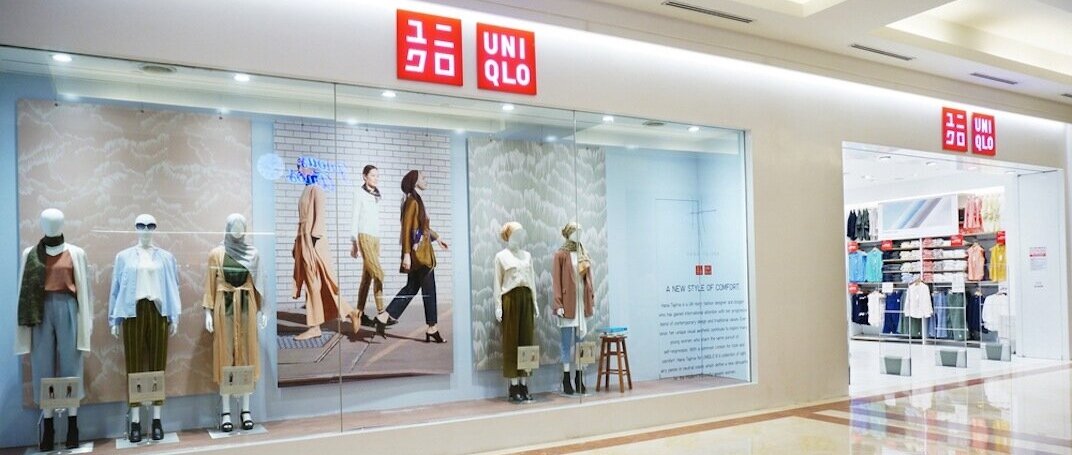How UNIQLO Became one of the Largest Clothing Retailers
From humble beginnings nearly 40 years ago UNIQLO is now a global brand with over two thousand stores around the world. Don’t let the simple and classic aesthetic of UNIQLO’s clothing fool you. With sales of 2.3 trillion yen ($15.9 billion) in the year ending August 2023 UNIQLO has its eyes set on becoming the number one clothing retailer in the world. Technical clothing and classic designs all at affordable prices are some of the keys to UNIQLO’s success. But if you are wondering what else makes UNIQLO special then consider these facts about its strategy and growth.
1. UNIQLO was founded by Tadashi Yanai who opened the first UNIQLO store in 1984 in Hiroshima Japan. UNIQLO was originally called Unique Clothing Warehouse and the name UNIQLO is a mash up of the words unique and clothing.
2. Yanai built UNIQLO by studying the Gap, which became successful by selling private branded apparel. “In the beginning, the ratio of original products in UNIQLO stores was not high” said Beryl Pei-Chi Tung a spokesperson for UNIQLO. “That was the case up until 1998 when UNIQLO opened its first store in Tokyo in the Harajuku district, with all the products on sale carrying the UNIQLO brand. “This helped us to establish a position of having high-quality products at reasonable prices, which is the fundamental value behind our products.
3. UNIQLO became popular in the early 1990s when Japan was in an economic downturn. Budget conscious consumers flocked to the retailer to buy its inexpensive clothing.
4. UNIQLO’s breakout moment happened 20 years ago when it launched its HeatTech line of merchandise in 2003. HeatTech wicks moisture away from the skin and transforms it into heat to keep you warm. By 2011 UNIQLO had sold nearly 200 million HeatTech items globally.
5. Then UNIQLO had another moment in 2009 when it launched its “ultra light down” jackets. The innovative material makes UNIQLO’s down jackets less bulky and so thin they can be rolled up into a ball the size of your fist.It’s UNIQLO’s technical clothing, similar to lululemon’s strategy which focuses on technical yoga wear, that is a fundamental part of its success.
6. UNIQLO also focuses on high quality materials in addition to technical fabrics. “It is also important that we use premium, natural materials — such as cashmere, extra-fine merino, premium linen, supima cotton and so on — but still have reasonable prices” said Tung.
Do you like this content? If you do subscribe to our retail trends newsletter to get the latest retail insights & trends delivered to your inbox
7. With 930 stores in China, China is UNIQLO’s number one international market making up approximately 25% of UNIQLO’s revenue. In 2021 Uniqlo had a 1.4% share of the Chinese apparel market, larger then any other brand.
8. Chinese consumers have taken to UNIQLO because it offers classic apparel at reasonable prices which is a good fit for the growing middle class in China.
9. Don’t get caught calling UNIQLO fast fashion. Yanai has said that: "we don’t chase trends. People mistakenly say that UNIQLO is a fast-fashion brand. We’re not. We are about clothing that’s made for everyone" and “we will never, ever offer disposable clothing” says Yanai.
10. A key part of UNIQLO’s strategy is limited release capsule collections with well known designers. UNIQLO has collaborated with Alexander Wang, Jun Takahashi, Tomas Maier and Jil Sander. These collaborations have helped to elevate the perception of the brand. “Because we’re so concerned with well-crafted timeless basics, we bring in collaborations to inject romance,” says UNIQLO’s former creative director, Rebekka Bay.
11. Fast Retailing Group which is UNIQLO’s parent company also owns several other popular clothing brands including Theory, Helmut Lang and J Brand.
12. In 2007 UNIQLO unsuccessfully bid to take over Barney’s New York.
13. Yanai is the richest man in Japan.

